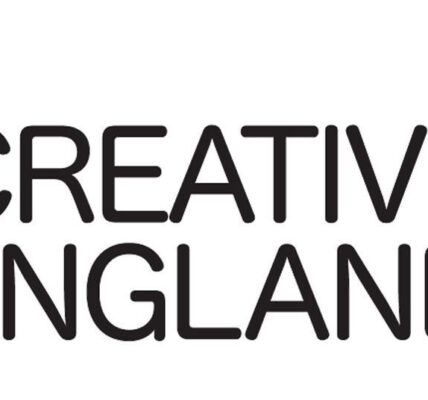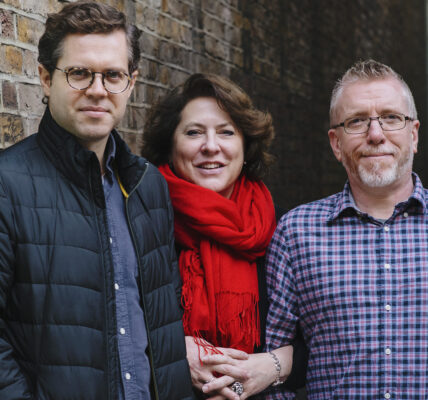Why do you think female film critics and commentators are important to the industry?
Catherine Bray (Editor, Film4.com) I don’t love the way this question is phrased; it feels like the burden of proof is somehow on women to prove what they are able to contribute. That’s not where the burden of proof lies. Any discipline will always be at its best when it selects from the brightest and most capable, regardless of factors like age, race or gender. Shutting out talent because of age, race or gender would always mean you shut out some of the best, which can never be good for a discipline. If you care about a subject, you need to encourage the best people to contribute to it.
Jane Crowther (Editor, Total Film) It’s important only in as much as every industry should reflect that half of us are female! I don’t think that women should be reviewing ‘women’s film’ but just that there are enough of us working in the industry to give young women thinking of doing this as a career an example to work towards. When we’ve got Kathryn Bigelow competing on a director level, Barbara Broccoli wrangling a billion-dollar franchise and actresses like Jennifer Lawrence dominating screens as strong female characters, there’s no reason why we shouldn’t see the same reflected in the film press.
Wendy Ide (Film Critic, The Times) While I think it’s wrong to say that our job as female film critics is to speak for all women—after all taste is not necessarily proscribed by gender—I think it is important to act as stewards and to be aware of the flow of images of women into the world and its impact on culture and society. Left alone, there is a segment of the entertainment industry which would be happy to relegate female characters to little more than tits on a stick. And while you don’t need to be a woman to point out that this kind of characterisation is cheap and unsatisfying, or that it is rather sordid to use violence against women for entertainment purposes, it adds weight to the argument.
Larushka Ivan-Zadeh (Film Editor, Metro) Because the film ‘industry’ is still hugely male-dominated. In terms of product, the biggest-budget blockbusters, the ones with the most significant cultural impact on a global scale, are still made by males for males, with female characters marginalised to wife/girlfriend roles. Having female film critics and commentators may not redress that, but they can at least give voice to a female viewer’s perspective using the heft of a respected, wide-audience media platform. Given all film criticism is ultimately subjective, it’s important that the media includes a diverse range of opinion-formers from all backgrounds and persuasions.
MaryAnn Johanson (Creator and Editor, flickfilosopher.com) Critics Because most of the critics and commentators right now are men, and they’re critiquing and commenting on a medium that caters to their biases and perspectives because most movies are made by men. Women critics are the little kid who’s not afraid to point out what the courtiers won’t say; that the emperor has no clothes. It’s not that most male critics are afraid to admit that the emperor has no clothes, it’s that most male critics honestly cannot see that the emperor has no clothes. I’ve lost count of the number of films that have enraged me with their anti-woman attitudes that male critics have apparently not even noticed. Until movies are made by as many women as men, women critics are a vital check on the industry. And when the gender ratio of filmmakers is 50/50, hopefully that of critics will also approach parity, so that we can continue to get a varied perspective on film.
Karen Krizanovich (Freelance Film Journalist) It is important to have varied points of view, and gender is as valid as any other point of view. A lot of times, I’ll read a review to see if I can tell if the reviewer is male or female. The fact that I get the answer wrong quite often (but not always) is quite heartening.
Katherine McLaughlin (Freelance Film Critic) Variation of opinion is important in criticism, whether that be male or female. Female film critics provide a different opinion which is vital, but many critics come from very different backgrounds and speak to their audiences as such, so for me it’s about diversity rather than gender.
Jennifer Merin (Film Critic, About.com and Founder, Alliance of Women in Film Journalism) Women, by virtue of the fact that they are women, have different perspectives about everything in life that might be represented or reflected in the movies. Women film journalists articulate unique perspectives on issues such as how women are represented in film, whether they are treated as full characters or eye candy, whether their potential for heroism is defined by masculine ideas and images of heroism, whether they’re cast into situations where their conduct is likely to influence bad behaviour in youngsters who see the film. Women comprise at least 50 per cent of (potential) cinema patrons; they want and deserve to read or hear professional women’s advice about which movies deserve their precious time and money. The industry would be wise to heed women film journalists’ reviews and comments, as well, to recruit more women moviegoers—those who now stay away because they find the current fare boring or, even worse, intolerable.
Anna Smith (Freelance Film Critic and Vice Chair, London Film Critics’ Circle) Aside from basic gender equality? Women love films as much as men and may feel underrepresented if they see very few women in film criticism. Gender should have no bearing on which topics we can and can’t review—we all review anything and everything. But there may be cases where a female critic can have a deeper understanding of the target audience than the available male reviewers, and no doubt vice versa, which I’m sure our editors take into account when commissioning freelancers.
Francine Stock (Presenter, The Film Programme, BBC Radio Four) Why should women not be important in any area? There have been many outstanding women critics right back to Iris Barry and beyond. It may be an anomaly that film criticism is still largely a male activity (and there may be practical considerations of time, commitment, etc., that contribute to that) but the whole filmmaking industry is changing and criticism will move along with that.
This excerpt is taken from a full conversation published in the movieScope #33: Women in Film











